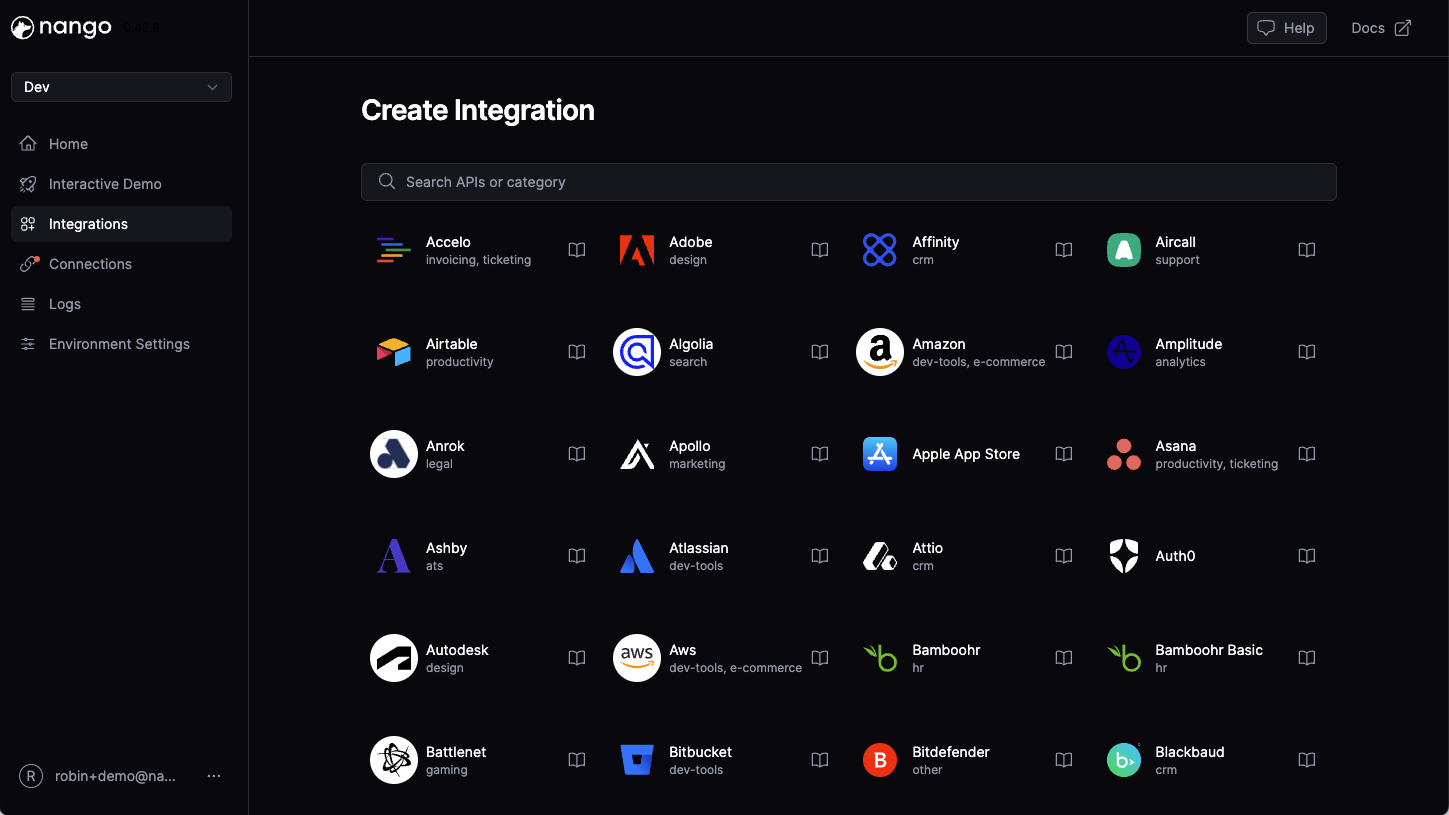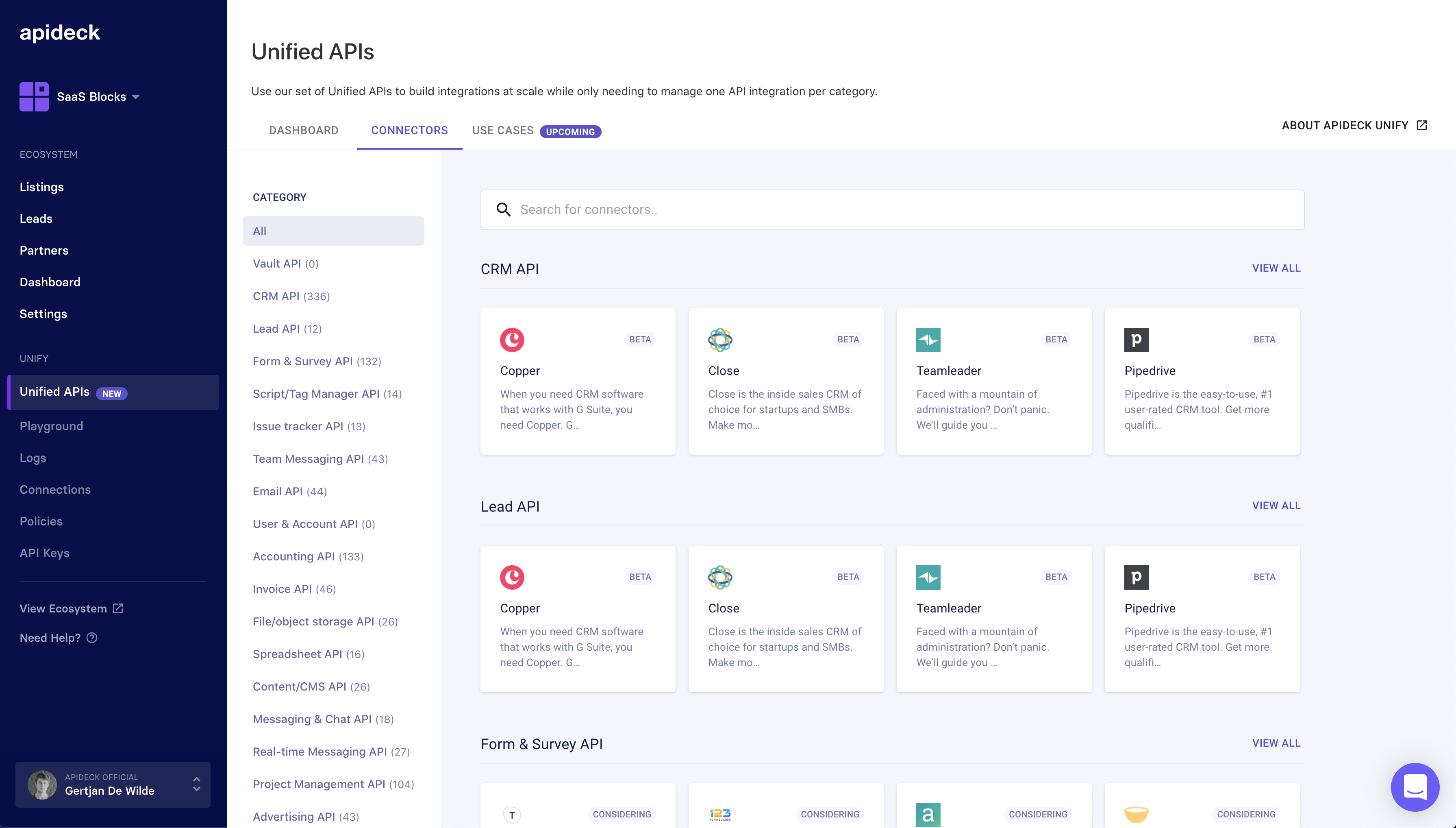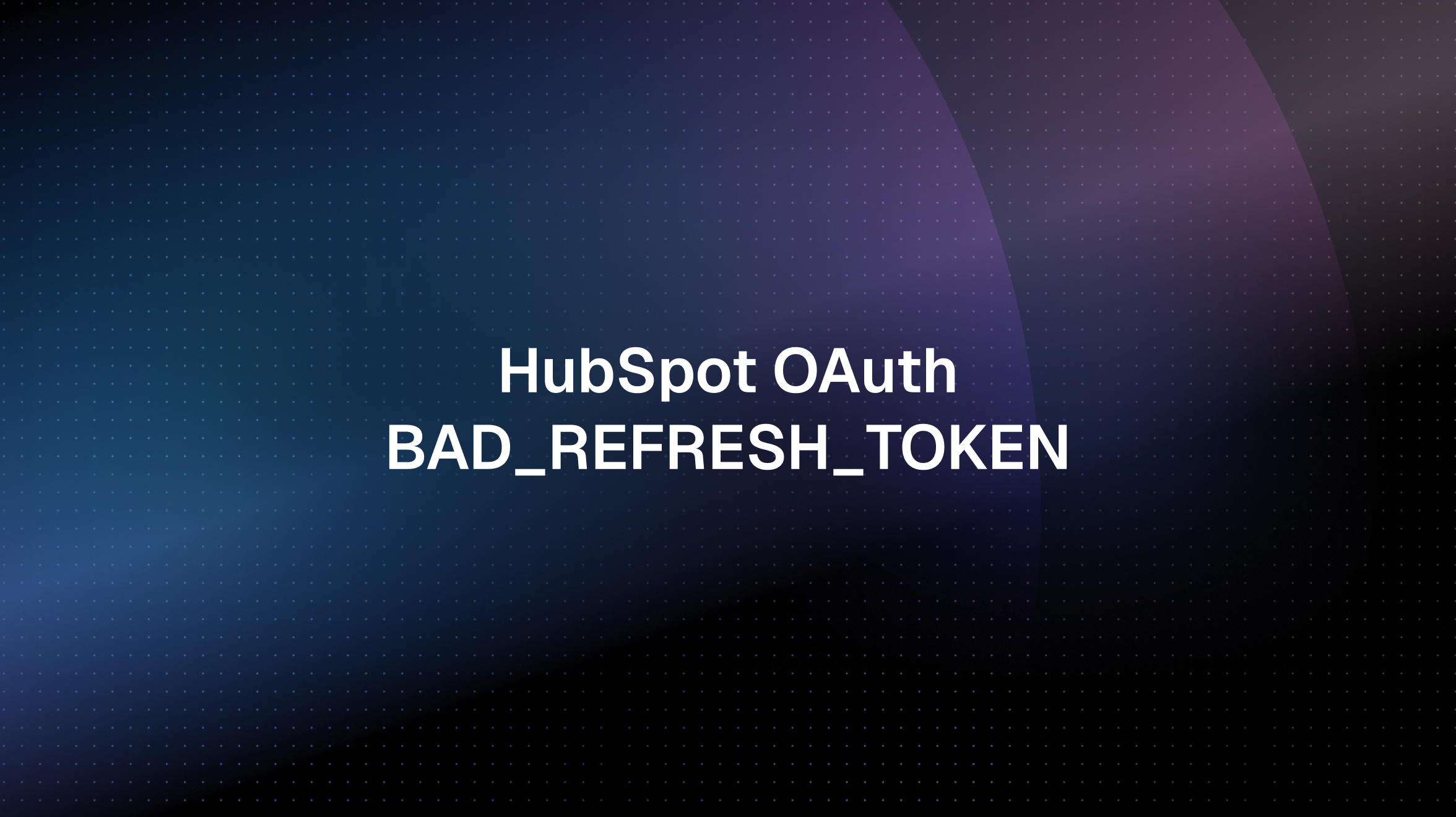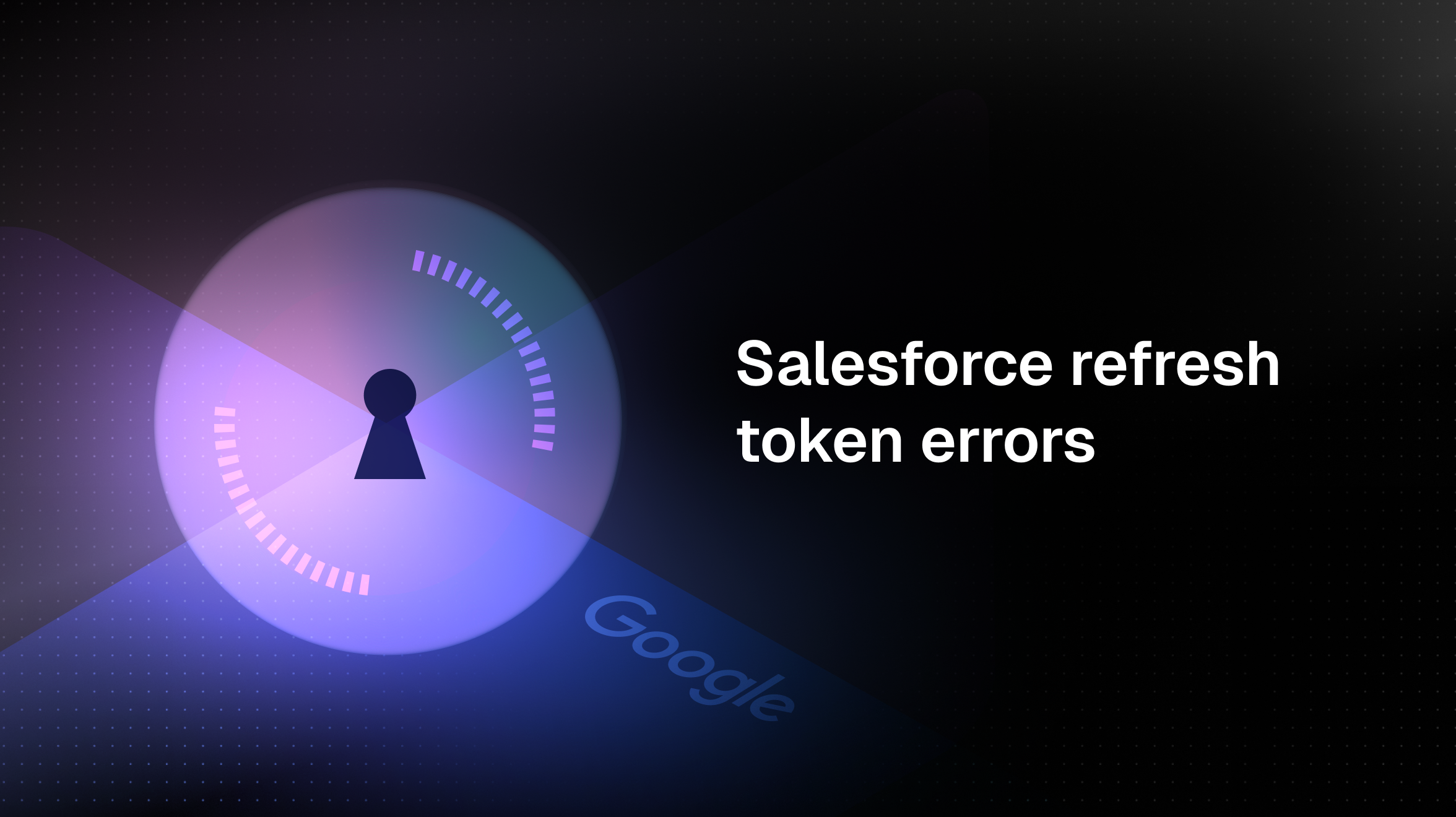The 4 most popular Merge.dev alternatives
4 Merge alternatives that could suit your needs better.
Merge.dev offers a unified API for several different categories, such as HRIS, ATS, CRM, and more. While unified APIs can accelerate integration development, they also come with important limitations that may not suit every use case.
We've analyzed the four most popular alternatives to Merge.dev and summarized them in this comprehensive overview to help you find the right solution for your integration needs.
Drawbacks of Merge.dev
While Merge's unified APIs have some advantages, they also have several important drawbacks that can limit your integration capabilities:
1. Limited API Coverage
Not all APIs that Merge supports cover all fields and features of its unified API. You cannot extend coverage or add support for new APIs yourself. This means you're dependent on Merge's roadmap and priorities for any changes or additions.
2. Unified Data Model is Limiting
The unified API only supports fields that exist on most external APIs. This makes it hard to implement API-specific features or support specific fields your customers need. You're limited to the lowest common denominator across all supported APIs.
3. No Control Over Integrations
You cannot change or extend integrations on Merge. If you need something it doesn't cover, you need to work around the platform and build everything yourself. This defeats the purpose of using a unified API in the first place.
These limitations make unified APIs a poor fit for integrations that are core product features. In this scenario, you may outgrow unified APIs rather quickly.
Besides these limitations, Merge's pricing can also be prohibitive for some use cases.
Best Merge.dev Alternatives
We've analyzed the market to compile the most popular Merge alternatives and how they compare to Merge.dev.
1. Nango
Nango is a developer platform for core product integrations that takes a different approach from pre-built unified APIs like Merge.
Instead of rigid, pre-built integrations, Nango provides developer infrastructure (API auth, data syncs, webhooks, observability, etc.) that lets engineers build exactly the integrations their product needs.
This gives you full, code-level control over your integrations. You can easily tweak integrations and build your own, custom unified APIs, or any other integration, with your preferred coding agent (e.g. Claude, Codex, etc.). Nango is also open source.
It supports 500+ APIs out of the box and is used by hundreds of fast-growing SaaS and AI agent companies.

Key Features
- Large catalog & add support for new APIs: Nango supports 500+ APIs across 28 categories. You can contribute support for new APIs yourself, or ask Nango to add them.
- Integrations as functions: Integrations in Nango are functions you can program. This gives you full control while benefiting from all of Nango's platform features.
- Comprehensive tooling: White-label authentication, end-user guides, data syncs, webhooks, LLM tool calling, observability, etc. Nango covers everything teams need to build advanced integrations.
- Built-in support for unified APIs: Nango lets engineers build custom unified APIs for their products, with a universal data model that covers the fields they need.
How Nango Compares to Merge
Nango gives you more control and flexibility compared to Merge. It covers more APIs and lets you build custom unified APIs. On the other hand, Merge integrations are more pre-built.
When to Choose Nango?
Companies typically choose Nango when integrations are a key feature in their product:
- Breadth & depth of API coverage: Full API access across hundreds of APIs, with full platform support.
- Flexibility & control: With code-level control, support for webhooks, and a modular approach, you can build any integration on Nango.
- Scalability: Hundreds of companies use Nango in production, running billions of API requests per month.
- Usage-based pricing:Nango's pricing is usage-based, with a free tier for development or early stage teams.
2. Apideck
Apideck is another unified API provider similar to Merge that supports several categories of unified APIs.
Instead of going deep into each category with a large number of supported APIs, they try to cover as many categories as they possibly can. At the time of writing, this means that most categories only cover a handful of APIs in them.
Advanced features, such as custom field mappings per customer, are missing. Instead, Apideck offers a built-in integrations marketplace that lets you display your integrations on your website.

Key Features
- Pre-built unified API: Similar to Merge, Apideck offers universal data models for a number of categories.
- Niche categories: Apideck covers some categories few unified APIs cover, such as e-commerce.
- Usage-based pricing: Apideck charges per API request to the external API. Its plans start at a lower tier than the plans of Merge.
- Integrations marketplace: Apideck offers an integrations marketplace you can embed in your website.
How Apideck Compares to Merge
When to Choose Apideck?
- Usage-based pricing: For some teams, usage-based pricing may work better than Merge's pricing structure.
- Coverage for categories: Apideck covers several more niche categories, such as e-commerce.
- Integrations marketplace: If you need a pre-built marketplace to showcase integrations on your website, Apideck might be a good fit.
3. Unified.to
Unified.to is another unified API provider that covers 20+ categories.
They support many niche categories like repository or messaging. Similar to Merge and Apideck, you cannot extend or customize integrations on Unified.to.

Key Features
- Pre-built unified API: Similar to Merge, Unified offers universal data models for a number of categories.
- Niche categories: Unified.to covers 20+ categories, some of which are very niche.
- Usage-based pricing: Unified.to has a usage-based pricing, with a free trial available for evaluation.
- MCP server: Besides the unified API, Unified.to also offers a built-in MCP server to interact with its universal APIs.
How Unified.to Compares to Merge
When to Choose Unified.to?
- Coverage of specific categories: Unified covers several niche categories that maybe no other unified API covers.
- Usage-based pricing: For some teams, usage-based pricing makes more sense.
4. Codat
Codat specializes in accounting and banking integrations for fintechs.
Their universal data models are optimized for common fintech scenarios such as underwriting, loan approval, or estimating the financial health of a business.
This may make it well suited for fintechs that were primarily interested in Merge's unified accounting integrations.
Key Features
- Coverage of banking & accounting APIs: Codat focuses on accounting and banking integrations.
- Built around finance use cases: Codat's APIs have endpoints for "spend insights", "lending", or "bill pay", instead of more traditional entity-focused endpoints.
- Multi-api connect flow: Codat's connect flow can ask end users to authorize multiple APIs, such as a bank API, accounting system, etc. in one flow.
- Support for desktop-only integrations: Codat supports APIs that are desktop only, such as QuickBooks desktop or Sage 50.
How Codat Compares to Merge
When to Choose Codat?
- Optimized for fintech: Codat is optimized for common use cases banks and fintechs face.
- White-glove support: With few APIs covered, Codat differentiates itself with white-glove support and professional services.
Final Thoughts
Choosing the right platform for your product integrations is an important infrastructure decision for every B2B software. The right product integrations platform accelerates your time to market, helps you ship the integrations your customers need, and lets you close more deals.
While Merge.dev offers a solid unified API solution, the alternatives we've covered each have their own strengths. Nango provides the most flexibility and control for teams that need to build custom integrations, while Apideck, Unified.to, and Codat offer specialized approaches for different use cases.
If you're still unsure which approach to integrations is best for you, check the Nango Slack community for help and recommendations. It has more than 3,000 developers and product managers building integrations at B2B SaaS products.
Useful Resources
How to build integrations you and your customers love
Should you build or buy product integrations?




